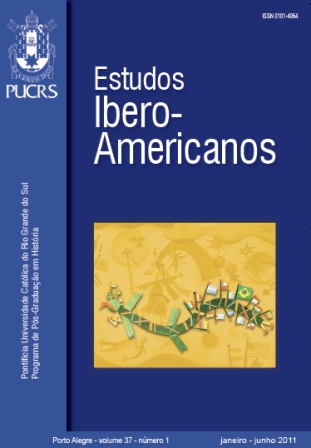On the theoretical convergences in the configuration of the Unidad Popular
DOI:
https://doi.org/10.15448/1980-864X.2011.1.8251Keywords:
Chile, Drive people’s, Differences, ConvergencesAbstract
The central issue raised by this work is the political nature of the Unidad Popular, which led in 1970 Allende to the Government of Chile. Political nature is understood as the set of ideological elements that allow the development of a proposal for transformation of the political regime and the power relationships that underlie. Interest to the political elements allowing that various parties of diverse tradition came to establish a common framework which sought to carry out a programme which stated start the road to socialism following a path institutional politician outside the rupture violent revolutionary approach. The paper establishes that the organizations that joined UP possessed, in spite of their differences, a set of common elements that converged in a historical, political and ideological framework. This convergence was connected with greater ideological weight of the Communist Party and its ability to bind to smaller organizations.Downloads
Downloads
Published
How to Cite
Issue
Section
License
Copyright
The submission of originals to Estudos Ibero-Americanos implies the transfer by the authors of the right for publication. Authors retain copyright and grant the journal right of first publication. If the authors wish to include the same data into another publication, they must cite Estudos Ibero-Americanos as the site of original publication.
Creative Commons License
Except where otherwise specified, material published in this journal is licensed under a Creative Commons Attribution 4.0 International license, which allows unrestricted use, distribution and reproduction in any medium, provided the original publication is correctly cited.






